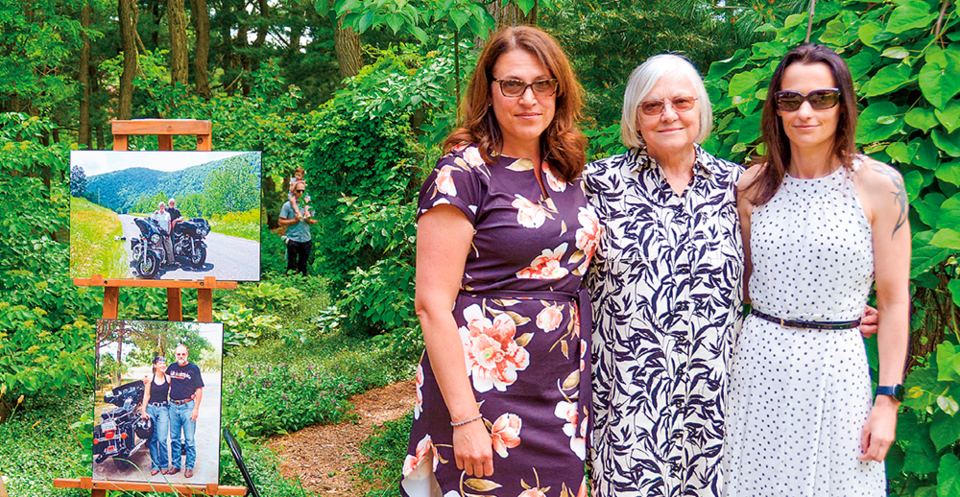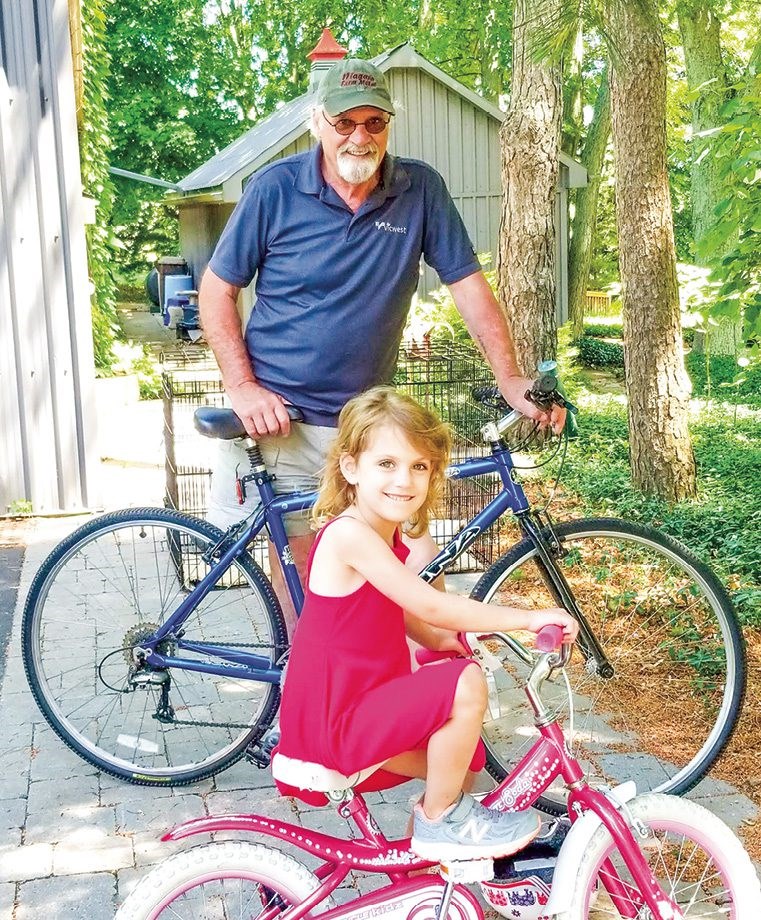“His life is defined by a complete disregard for the law, court orders, and public safety”
Last Thursday afternoon, justice was served in courtroom number six at the Robert S.K. Welch Courthouse in St. Catharines, as Justice Joseph DeFilippis sentenced career criminal Jason Lusted to 14 more years of incarceration. The actual sentence was 18 years, with credit given for time already served behind bars, and additional consideration for adverse conditions Lusted experienced during pandemic lockdown. Lusted had pleaded guilty to manslaughter in the October 2020 death of Pelham resident Earl Clapp.
Justice DeFilippis recounted the irrefutable facts of the case in his written decision.
Earl Clapp was a 74-year-old Fenwick resident who owned and operated a farm metal products business from his property on Centre Street. The evening of October 2 2020, Lusted and his co-accused, Matthew McInnes, drove in Lusted’s Ford Expedition (which has never been located) to Clapp’s address, with the intention of stealing his trailers from a locked enclosure. The pair had purchased illicit drugs earlier that evening. Noise from the power tools they were using in the theft awakened Clapp, and he went outside to investigate. In his bid to escape, Lusted drove his Expedition in a swerving path towards Clapp, which collided with Clapp and caused him to be trapped under the vehicle. Lusted sped off, dragging Clapp for almost two kilometres. His body was found by a passing motorist on Highway 20 at about 3 AM.

MacInnes, 40, pleaded guilty in March on lesser charges of theft, and testified for the Crown against Lusted at the trial.
Lusted did not have a gentle upbringing, as DeFilippis noted in his judgment.
At age nine, he became a Crown ward at the request of his parents (an alcoholic mother and abusive father), due to his uncontrollable behaviour. He was placed in care for psychiatric treatment, and lived in group homes until he was 16. Lusted had a history of learning disabilities, depression, and drug addiction, and never achieved stable employment. Over a 30-year period beginning in 1986, he accumulated 65 convictions for a wide variety of offences, and had been sentenced to penitentiary seven times, including a six-and-a-half-year term for being an accessory after the fact to murder. On five occasions, Lusted was found guilty of dangerous driving, with three of those offences involving flight from police pursuit. He had six convictions for driving while under suspension.

DeFilippis noted that Lusted had offered previously in court a tearful apology for the suffering he had caused to the deceased’s family and friends.
“He acknowledged that his selfish act in defiance of the law caused the suffering to the Clapp family and the community, and that he was deeply tormented by what he did,” wrote DeFilippis in his judgment. “The imposition of sentence is governed by part 23 of the Criminal Code. The fundamental purpose of sentencing is to protect society…and the maintenance of a peaceful and safe society by imposing just sanctions…proportional to the gravity of the offence and the degree of responsibility of the offender.”
Manslaughter is defined as culpable homicide in Canada, with a maximum penalty of life imprisonment. Unlike with murder, there is no minimum penalty.
“In this case, I find that the position advanced by the Crown [of a lengthy sentence] is a measured response to the offence and the offender,” wrote DeFilippis. “Mr. Clapp died in horrific circumstances. Mr. Lusted has lived a life of persistent criminality that began when he was a youth and continued with few gaps until age 50 when he was arrested for causing the death of Mr. Clapp. His life is defined by a complete disregard for the law, court orders, and public safety. His unnecessary, selfish, and deadly action of driving dangerously and fleeing the scene of a crime comes with a history of such misconduct. His moral blameworthiness is high. I accept the sincerity of the defendant’s apology, but it comes too late to materially affect my decision on sentence. My focus must be on denunciation and deterrence.”
Lusted's lawyer requested that DeFilippis assign Lusted to the medium-security prison in Bath, Ontario, given that the facility has rehabilitation programs that Lusted feels will benefit him. His Honour deferred the decision, noting that staff at Corrections Canada are best able to make the determination of Lusted's needs.He must provide a sample of his DNA, is prohibited from possessing firearms and other weapons, and his driving privileges are suspended for 20 years. Lusted must also not attempt to communicate with the Clapp family while serving the sentence.
“I could not do justice to the 76 victim impact statements — from family, friends, and business associates — by attempting to summarize them,” wrote DeFilippis. “I hope it will suffice to simply note now, as I did during the sentencing hearing, that these statements paint a picture of remarkable man. Mr. Clapp was loved as a husband, father, and grandfather, valued as a friend, and trusted in business.”
Mr. Clapp was loved as a husband, father, and grandfather, valued as a friend, and trusted in business
Lusted was supposed to appear in person for sentencing, but there was a breakdown in communication with the authorities at Maplehurst Correctional Complex in Milton, and he wasn’t present for his 2 PM court appearance. After a long delay, Lusted was connected to the courtroom via Zoom, and his sentence was delivered by DeFilippis.
Earl’s widow, Tillie Clapp, and her family retreated to the sanctity of home after the sentencing.
“We had a little bit of quiet time outdoors, and watched the sun go down, the way we always used to do with Earl. It was therapeutic,” said Clapp, adding that DeFilippis’ judgment, meting out a sentence that was close to the maximum allowed by law, renewed her faith in the judicial system.
“I thought the judge’s comments were very insightful, as he described how heinous the crime was,” said Clapp. “His words were like a salve on our family’s wound.”

Clapp is aware that Canadian law allows for parole consideration after two thirds of a sentence has been served. How does she feel about the possibility of her husband’s murderer being released in less than ten years?
“Well, I’m 76 now, but if I'm still alive, I will go to the parole hearing,” she said. “I will remind them that the original charge was second-degree murder. The charge was downgraded to manslaughter, as oftentimes happens. The criminal pleads guilty to save everyone a lot of heartache, time, and money. But I will remind them of the 76 victim impact statements at the parole hearing, to demonstrate the magnitude of loss this was to them. I’m so thankful to all of those people that showed up in court that day to her the victim impact statements…the community outrage was very clear. It had a significant impact on Justice DeFilippis, and that's why he ruled in at the higher end of the possible sentences.”

DeFilippis noted in his remarks that, given Lusted’s long history of criminality, he is not optimistic at the prospect of rehabilitation.
“This isn't about revenge. And it isn't even just about punishment. It's about protecting the community,” said Clapp. “We know this guy’s track record, and if he’s on the streets, it's just going to happen again.”
As she emerged from the courtroom after sentencing, Clapp met with the two lead detectives who had worked quickly and tirelessly with their team to find Earl’s killers.
“The entire homicide team that worked on this case came to court,” said Tillie. “It's easy to get immersed in our pain, but I will always remember how, with no camera evidence or witnesses, they caught the two men in eight days. Police are often criticized, but my respect for them went up a million-fold.”
Lusted will be eligible to apply for parole at the one-third and two-thirds intervals of his sentence. Due to his lengthy record of criminality, he is unlikely to get parole at the one-third mark, but there is a greater chance that he will be successful after less than ten years of his sentence have been served, assuming satisfactory behaviour in prison. Lusted was given credit for incarceration already served, plus credit for the “hardship” of being in jail during Covid lockdowns.
Had Indigenous heritage (as Lusted asserted) been confirmed, he would have received addition credits under Gladue principles, which attempt to quantify the degree to which systemic racism may have impacted a defendant’s life. But Indigenous lineage was not proven to the satisfaction of the court.
“We knew all along that no sentence, lengthy or not, would bring Earl back,” said Clapp. “We don’t interpret the length of the sentence as representing Earl's value to our family, his friends, or to our community.”


